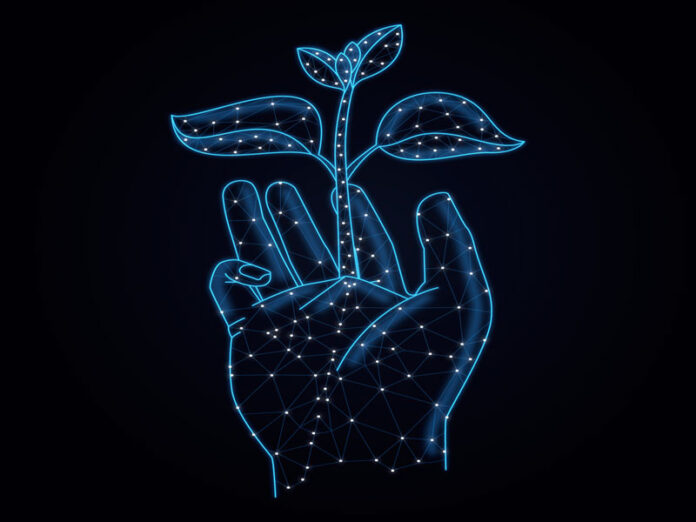The beginning of a new year is a special time. It’s a moment filled with hope, ambition, and the excitement of a clean slate. You set goals, make resolutions, and dream of reaching your ambitions you set every year… But as the days roll by, many lose the spark and the motivation to achieve those New Year’s resolutions. Life gets busy, old habits creep in, and those big dreams feel increasingly out of reach.
In fact, a 2024 survey by the Pew Research Center found that less than a month into the new year, only 59% of people who made multiple resolutions had kept all of them. After that, the stick-to-it rate typically slides even more.
So, how can we break the cycle this year?
Reframe Resolutions To Evolution
The term “resolutions” often feels rigid, tied to the pressure of immediate change and perfection. Instead, reframing resolutions as evolutions shifts the focus to growth, learning, and gradual progress—allowing for flexibility and self-compassion along the way.
What if in 2025, instead of focusing on perfection or impressive New Year’s resolutions, why not lean into something more sustainable: momentum?
Momentum is a powerful force that can carry us through the inevitable ups and downs of life. Like a snowball rolling down a hill, it starts small but grows over time, creating incredible progress with far less effort than we might imagine.
è Example in action: If financial freedom is your goal, start with saving just R100 a week. Once this becomes second nature, increase the amount.
Big Shifts Start With Tiny Habits
- Momentum begins with small wins
Each time we achieve something, no matter how minor, our brain releases dopamine, the “feel-good” chemical. This boost not only improves our mood but also reinforces our belief that success is possible. These small victories act as stepping stones, leading us toward larger goals.
Example in action: If you’ve ever started a fitness journey, you’ll know how good it feels to complete your first workout. That single act can motivate you to show up again, do so consistently and before you know it, you’ve built a habit. Just as a single workout won’t transform your fitness, a single effort at habit change won’t rewire your brain. But, through consistent practice, you can create lasting habits that enhance your life.
People often wonder how long it takes to form a habit, but the truth is, there’s no one-size-fits-all answer as intrinsic motivation, the environment and repetitions play a part. There’s no magic timeline that guarantees success and the popular rule of thumb, of 21 days to change a habit is an oversimplification.
Dr. Caroline Leaf, a cognitive neuroscientist, highlights the importance of neuroplasticity in habit formation and behaviour change. Her research aligns with the idea that it takes more than the commonly touted 21 days to form a lasting habit.
- Evolve your identity, not just your behaviour
True change begins when you focus on who you are becoming rather than just the actions you are taking. Instead of setting a goal like, “I want to read more books,” reframe it as, “I’m becoming someone who values learning and growth.”
This subtle shift from behaviour to identity fosters intrinsic motivation, making it easier to maintain habits because they align with your sense of self. When your actions reflect the person, you aspire to be, they feel more natural and sustainable, creating lasting change.
- Consistently show up
It’s not about making drastic changes overnight; it’s about showing up regularly, even if the effort seems small.
A daily 10-minute walk might not seem like much, but over a year, it adds up to significant benefits for your health. This is why momentum thrives on consistency over intensity. It’s better to commit to manageable actions you can sustain rather than aiming for perfection and burning out after a week.
Example in action: If your goal is to write a book, start with writing one sentence a day. Over time, sentences become paragraphs, and paragraphs become chapters.
Celebrate Progress, Not Perfection
Embrace the momentum – start with the easiest and most achievable goals.
Tackling small tasks first creates quick wins that build your confidence. If your goal is to become financially stable, start by saving just a small amount each week. It’s not the size of the action that matters—it’s the act of starting and staying consistent.
Momentum also requires us to redefine success. Life isn’t linear, and neither is progress.
It’s essential to celebrate the small steps and acknowledge the effort, even when the results aren’t immediate. By shifting our focus from the outcome to the process, we allow ourselves to stay motivated and enjoy the journey.
Momentum isn’t about perfection; it’s about persistence. It’s about showing up, taking one step at a time, and allowing those steps to build into something extraordinary.
What’s In Your 2025 Toolkit?
To set yourself up for success in 2025, consider incorporating four essential elements into your routine.
- Mindset reset rituals – ground yourself and start each day with purpose. Morning affirmations, gratitude journaling, or an evening “mind dump” to clear your thoughts can help cultivate a positive and focused mindset.
- Energy amplifiers – prioritise your vitality and wellbeing. Regular movement, quality sleep, staying hydrated, and nurturing meaningful relationships are key factors that boost both physical and mental energy.
- An accountability partner—whether it’s a trusted friend, coach, or supportive community. These connections provide encouragement, perspective, and the motivation to stay on track with your goals. These practices can create a strong foundation for a fulfilling and impactful year.
- Choose words carefully – the words we use shapes our mindset and replacing rigid phrases like “I must eat healthy every day” with growth-oriented ones such as “I am learning to make choices that nourish me” can make a significant difference. This shift from pressure to curiosity fosters a sense of patience and self-compassion.
- Momentum and repetition are key – Dr Leaf proposes a 63-day cycle for effective habit formation:
The first 21 days, the focus is on identifying habits and actively replacing them with positive alternatives.
The next 21 days are crucial for reinforcing the new neural networks formed in the first phase. This stage involves consistent repetition of the positive behaviour or thought, which strengthens the brain’s wiring.
The final phase consolidates the habit, embedding it into the subconscious mind and making it automatic. By this point, the behaviour becomes a natural part of daily life.
Wrapping up

Instead of chasing resolutions that feel overwhelming, embrace the power of momentum. Momentum fuels growth. Start small, stay consistent, and watch your progress expand into something remarkable.






